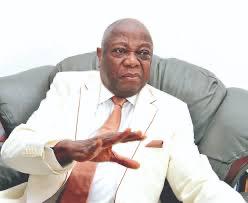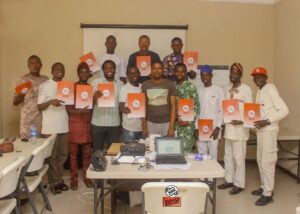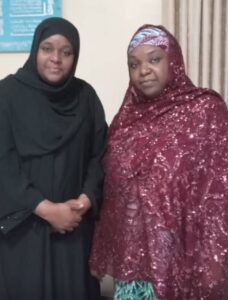Abacha CSO, Al- Mustapha makes shocking revelations on killings in Nigeria
Former chief security officer (CSO) to the late head of state, Gen. Sani Abacha, Major Hamza Al-Mustapha, had lamented that corruption has permeated the military and some people are feeding fat from the insurgency ravaging the northeast.
He stated that insurgency, kidnapping, cattle rustling, and banditry are the investment of some people who divert public attention from what is right, adding: “When a wound is allowed to go deep, pain is the only means of getting it out, and there should be a pain if Nigeria must be restored on the course of progress and development.”
He described the insurgency as connivance between external and domestic enemies of Nigeria, saying it is the duty of the government of any country to always remove security managers who are not performing up to expectation.
Contrary to the wide-held belief that the Boko Haram insurgency ravaging the northeast of Nigeria started about one decade ago, Al-Mustapha disclosed that the insurgency actually reared its head 20 years and three days ago in the country.
Speaking at the Nigerian Leadership Award (NLA) programme organised by Privileged magazine and Poverty Alleviation Stipends in Kaduna, where he bagged an extraordinary leadership award, alongside Senator Ahmed Makarfi and Dr. Suleiman Ibrahim Gora, Al-Mustapha explained that it is shameful and unfortunate that Nigeria’s security managers appear to have no clues of when exactly Boko Haram started and a number of illegal arms in the country, the information he said ordinary Nigerians should have at their fingertips.
Al-Mustapha, who was the guest speaker at the programme, themed, ‘Security Challenges and the Need for National Integration,’ noted: “I became dumbfounded in a gathering where those who are supposed to be the manager of the security could not tell me in a question I raised as to when Boko Haram started, who started it, where they are getting their reinforcements and supplies from, whose interest is it to attack the northeast and from there inching into the hinterland proper? Whose idea is it? Does it cost more to manage a conventional military or does it cost much to manage insurgency?
“These questions should be at the fingertips of the citizenry, talk less of those who are entrusted to manage.
“Boko Haram, in my in-depth research, is exactly 20 years and three days in Nigeria. Equally, nobody among those managing them that can give you the exact figures of casualties of victims of insurgency in Nigeria.
“You will be shocked to hear the managers of our securities saying Boko Haram is seven years old; Boko Haram was 11 years old and all kinds of variations. It is extremely disturbing that we don’t lose data as to when they came and where they are heading to.
“To me, this is disturbing and any person or persons, no matter how influential, once you identify negligence in the art of managing your security, you should understand that they are either accomplices or you should get rid of them, no matter who they are. If you are no longer valuable in promoting peace security and unity in the land, you cannot be entrusted with responsibility.
“One may ask: Weapons seized for many years, where are they? Who is using them? Where have they been taken? Is it wise to just keep them and continue to watch them? How many are these weapons? Who is utilising them today? These, I don’t know the answers to, but you should ask, as a Nigerian,” he advised.
Al-Mustapha, however, noted that Nigeria as a country with natural resources is targeted by enemies from outside, who usually recruit insiders that exhibit criminal, greedy attributes to help them achieve their objectives of milking its resources.










